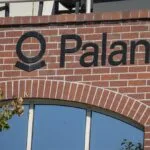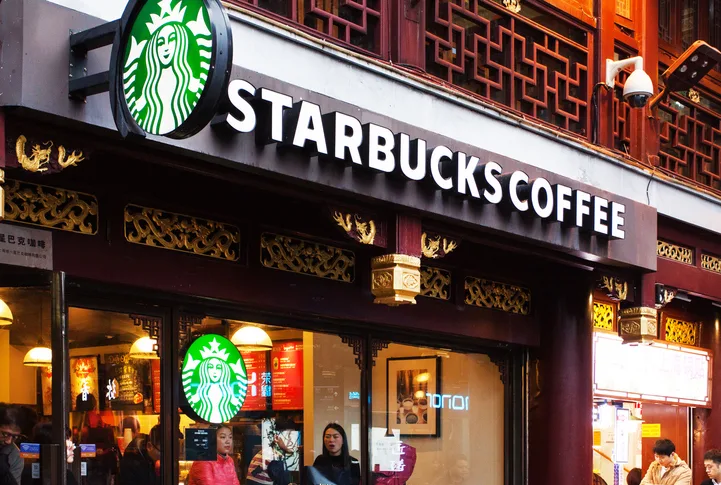
TLDR;
- When it was cheap to get loans (3.6% Interest), company borrowed a lot of money for growth to open up more stores across globe, which was great a move.
- Global avg ticket size : Starbucks($7.85), Dunkin'($4.22), McDonald’s($5.20) and Luckin Coffee($2.17)
- High interest environment is restricting consumers with discretionary spends.
- Diversify more stores outside US.
- 60% of morning business is done via app, and often loyal customer add item to cart but do not checkout due long wait time.
Traditional Metrics
- 30% discounted from its top in Apr 2023
- P/E = 22x, Industry P/E = 16.87x
- Operating cash flow of $2.890B, 22.41% increase YoY.
- A 15% miss on EPS and a 6.4% miss on revenue in Q2 2024
- Starbucks Rewards Membership was 32.8Mn, up 6% YoY
- Store sales down by 4% as compared to +12% last year.
- Coffee prices up by 20% this year.
Q2 Guidance Headwind Reaction
- Sales growth : low single digit from 4-6%.
- Global unit store growth : Now 6%, previous 7%
- Revenue : Now low single digits, previous 7-10%
- Earnings per share: Now low single digits, previous 15%
- Share price dropped 18% after Q2 new guidance.
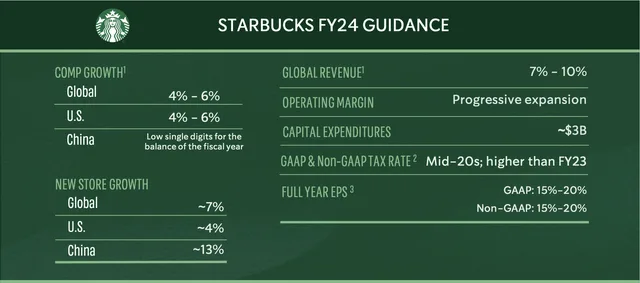
The China Play
- The company opened 364 new stores in Q2, leaving a total of 38,951, where 61% (16,600) are in U.S. and 18.21% (7,093) stores in China.
- China again led the revenues down by 5% to $1.8 billion, reflecting a 5% unfavorable impact from foreign currency translation.
- Average ticket size fell by 4%.
- Chinese store foot fall dropped by 8% & avg ticket size fell by 4% as rivals put more efforts through promotions and aggressive pricing tactics.
- Luckin Coffee : Doubled its outlets (18,590) in china, with ChaPanda operating 8000 stores.
- Young Chinese customers naturally gravitate towards Boba tea shops.

Economic Moat
- Acts as a bank, as through its Starbuck loyalty card program it earns money before providing any services to consumers.
- In 2019 users held $1.5Bn as cash in their Starbucks card, this money provides Starbucks a 0% interest loan, which they can invest to earn bond yield or use it for store expansion program.
- Lower marketing cost advantage: Starbucks (1.1% of sales), McDonald’s (4% of sales) and Dunkin’s (5% of sales).
- Loyalty app users spends average 2-3x more compared to one time consumer, providing volumes of data to increase promotion efficacy across geographies.
- Increased transactions via Mobile Order & Pay (MOP) accounting for 31% sales in 2Q24, as of 14% in 2018.
- More demand on cold beverages, which accounted for ~70% of sales in 2023, compared to ~47% in 2018.
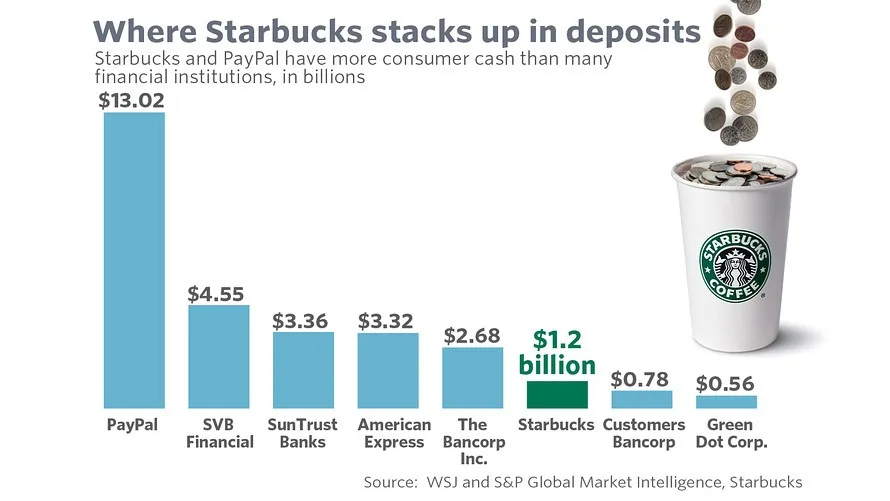
Risk
- Due to high interest rate environment consumer spending has tightened due to heightened prices.
- Coffee bean prices skyrocketing in last 2-3 quarters.
- Legislators in California increased the min wages to $20/hr compared to current avg. min Starbucks wage of $17/hr, this directly affects companies operational costs.
- Challenge meeting their peak morning demand.
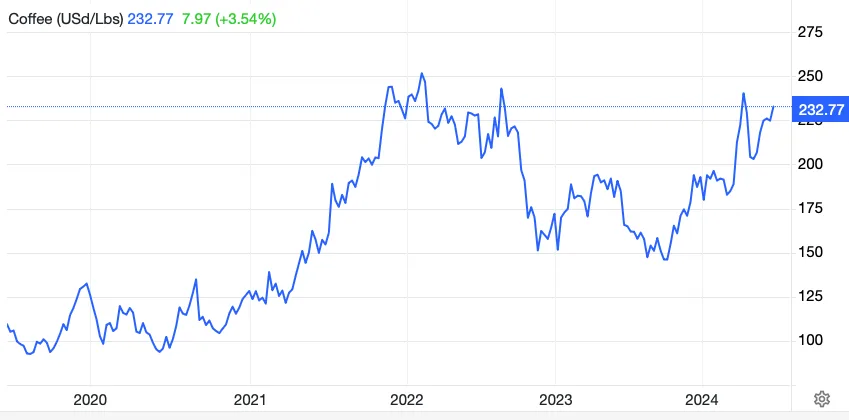
Multifaceted Plan
- New store formats (i.e. drive thru, walk up, pick up only etc.) by investing $600mn over 3 years.
- Enhance connection with occasional and non-Starbucks rewards customers by giving exclusive offers in app.
- Target lower tier cities in China, and capitalise on rising middle class.
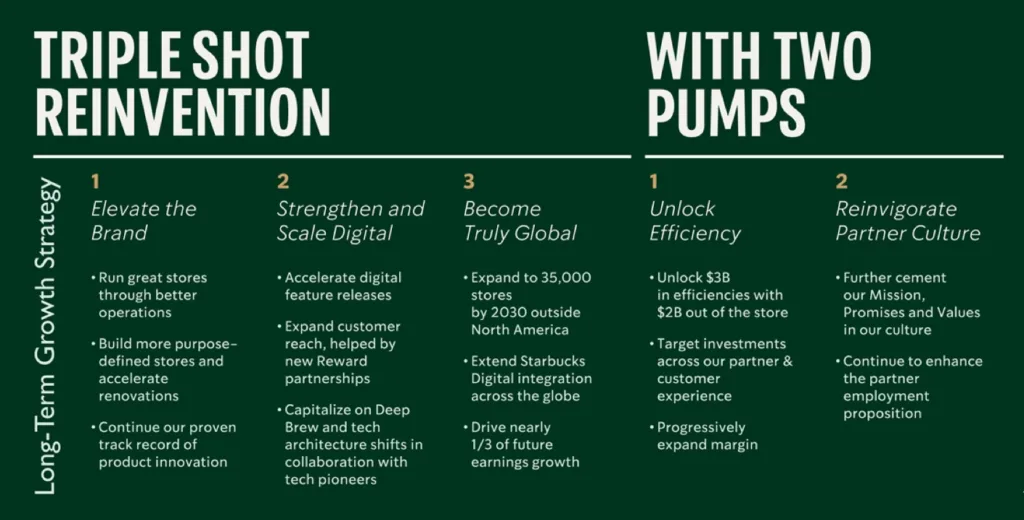
2029 Valuation
ASSUMPTIONS :
- LTM Revenue: $36.53B
- 5Y Revenue CAGR: 7%
- 2029 Net Profit Margin: 13%
- 2029 PE Ratio: 20
- Shares outstanding: 1.135B
- Shares reduction: 2%/year
VALUATION :
- Q1 2029 SHARE PRICE = 36.53 * (1.07)^5 * 0.13 * 20 / [1.135 * (0.98)^5] = $130
- Using discount rate for Starbucks as 9%.
- CURRENT SHARE PRICE: $72
- DISCOUNT RATE: 9%.
- FAIR VALUE: $130 / (1.09)^5 = $84
- POTENTIAL UPSIDE: 17%
- EXPECTED RETURNS: 12.5%/year
- DIVIDEND YIELD: 3.13%
- MY RATING: Conservative buy with 3% of portfolio, with room for DCA.


